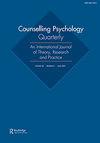Psychotherapy failures: to err is human
IF 1.5
Q3 PSYCHOLOGY, APPLIED
引用次数: 0
Abstract
ABSTRACT Despite the consistent positive outcome findings and psychotherapists’ best intentions in their efforts to help their clients, psychotherapy simply does not work in all cases. There are a variety of reasons why there may be treatment failures in psychotherapy that may be observed at multiple levels: (a) the treatment in question (e.g. the choice of intervention for a given presenting concern), (b) the individuals involved (e.g. therapist and client factors), and (c) the system in which the work of therapists is nested (e.g. the governance of the profession, jurisdictional laws, among others). The field has not fully developed adequate procedures and mechanisms for addressing treatment failures, which is at the core an ethical imperative. Although psychotherapy has made many strides over the last few decades to improve research rigour and to promote evidence-based practices, it is a profession that is continually growing. By embracing the opportunity to learn from therapeutic failures the profession will continue to refine its practices and ultimately better serve clients.心理治疗的失败:犯错乃人之常情
尽管有一致的积极结果发现和心理治疗师在努力帮助他们的客户的最佳意图,心理治疗并不是在所有情况下都有效。心理治疗中可能出现治疗失败的原因有很多,可以在多个层面上观察到:(a)有问题的治疗(例如,针对特定表现问题的干预选择),(b)涉及的个人(例如,治疗师和客户因素),以及(c)治疗师工作的嵌套系统(例如,职业治理,司法法律等)。该领域尚未充分制定适当的程序和机制来解决治疗失败问题,这在核心上是一项道德要求。尽管在过去的几十年里,心理治疗在提高研究的严谨性和促进循证实践方面取得了许多进步,但这是一个不断发展的职业。通过拥抱从治疗失败中学习的机会,这个行业将继续改进其实践,最终更好地为客户服务。
本文章由计算机程序翻译,如有差异,请以英文原文为准。
求助全文
约1分钟内获得全文
求助全文
来源期刊

Counselling Psychology Quarterly
PSYCHOLOGY, APPLIED-
CiteScore
6.20
自引率
6.70%
发文量
30
期刊介绍:
Counselling Psychology Quarterly is an international interdisciplinary journal, reporting on practice, research and theory. The journal is particularly keen to encourage and publish papers which will be of immediate practical relevance to counselling, clinical, occupational, health and medical psychologists throughout the world. Original, independently refereed contributions will be included on practice, research and theory - and especially articles which integrate these three areas - from whatever methodological or theoretical standpoint. The journal will also include international peer review commentaries on major issues.
 求助内容:
求助内容: 应助结果提醒方式:
应助结果提醒方式:


